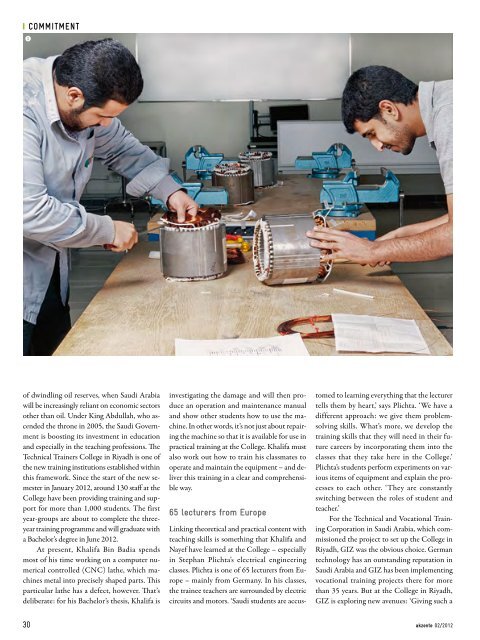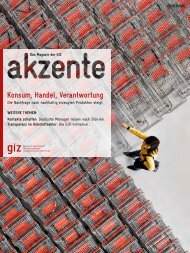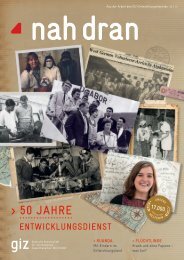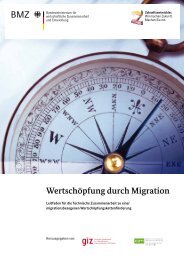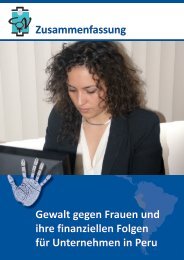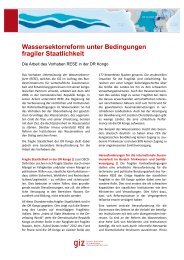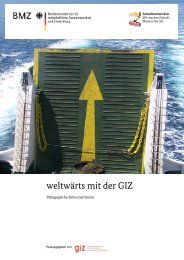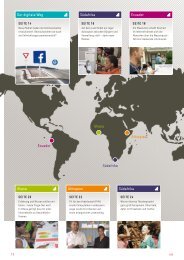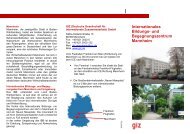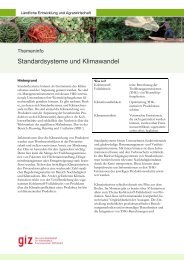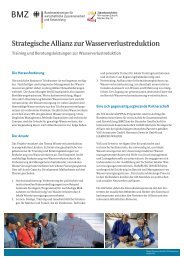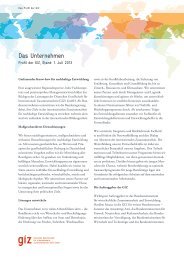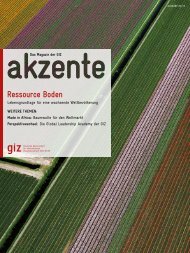Complete issue (pdf, 12.56 MB, EN) - GIZ
Complete issue (pdf, 12.56 MB, EN) - GIZ
Complete issue (pdf, 12.56 MB, EN) - GIZ
Create successful ePaper yourself
Turn your PDF publications into a flip-book with our unique Google optimized e-Paper software.
Linking theoretical and practical content with<br />
teaching skills is something that Khalifa and<br />
Nayef have learned at the College – especially<br />
in Stephan Plichta’s electrical engineering<br />
classes. Plichta is one of 65 lecturers from Europe<br />
– mainly from Germany. In his classes,<br />
the trainee teachers are surrounded by electric<br />
circuits and motors. ‘Saudi students are accuse<br />
COMMITM<strong>EN</strong>T<br />
e<br />
r<br />
of dwin dling oil reserves, when Saudi Arabia<br />
will be increasingly reliant on economic sectors<br />
other than oil. Under King Abdullah, who ascended<br />
the throne in 2005, the Saudi Government<br />
is boosting its investment in education<br />
u<br />
and especially in the teaching professions. The<br />
Technical Trainers College in Riyadh is one of<br />
the new training institutions established within<br />
this framework. Since the start of the new semester<br />
in January 2012, around 130 staff at the<br />
College have been providing training and support<br />
for more than 1,000 students. The first<br />
year-groups are about to complete the threeyear<br />
training programme and will graduate with<br />
a Bachelor’s degree in June 2012.<br />
At present, Khalifa Bin Badia spends<br />
most of his time working on a computer numerical<br />
controlled (CNC) lathe, which machines<br />
metal into precisely shaped parts. This<br />
particular lathe has a defect, however. That’s<br />
deliberate: for his Bachelor’s thesis, Khalifa is<br />
investigating the damage and will then produce<br />
an operation and maintenance manual<br />
and show other students how to use the machine.<br />
In other words, it’s not just about repairing<br />
the machine so that it is available for use in<br />
practical training at the College. Khalifa must<br />
also work out how to train his classmates to<br />
operate and maintain the equipment – and deliver<br />
this training in a clear and comprehensible<br />
way.<br />
65 lecturers from Europe<br />
tomed to learning everything that the lecturer<br />
tells them by heart,’ says Plichta. ‘We have a<br />
different approach: we give them problemsolv<br />
ing skills. What’s more, we develop the<br />
training skills that they will need in their future<br />
careers by incorporating them into the<br />
classes that they take here in the College.’<br />
Plichta’s students perform experiments on various<br />
items of equipment and explain the processes<br />
to each other. ‘They are constantly<br />
switching between the roles of student and<br />
teacher.’<br />
For the Technical and Vocational Training<br />
Corporation in Saudi Arabia, which commissioned<br />
the project to set up the College in<br />
Riyadh, <strong>GIZ</strong> was the obvious choice. German<br />
technology has an outstanding reputation in<br />
Saudi Arabia and <strong>GIZ</strong> has been implementing<br />
vocational training projects there for more<br />
than 35 years. But at the College in Riyadh,<br />
<strong>GIZ</strong> is exploring new avenues: ‘Giving such a<br />
30 akzente 02/2012


